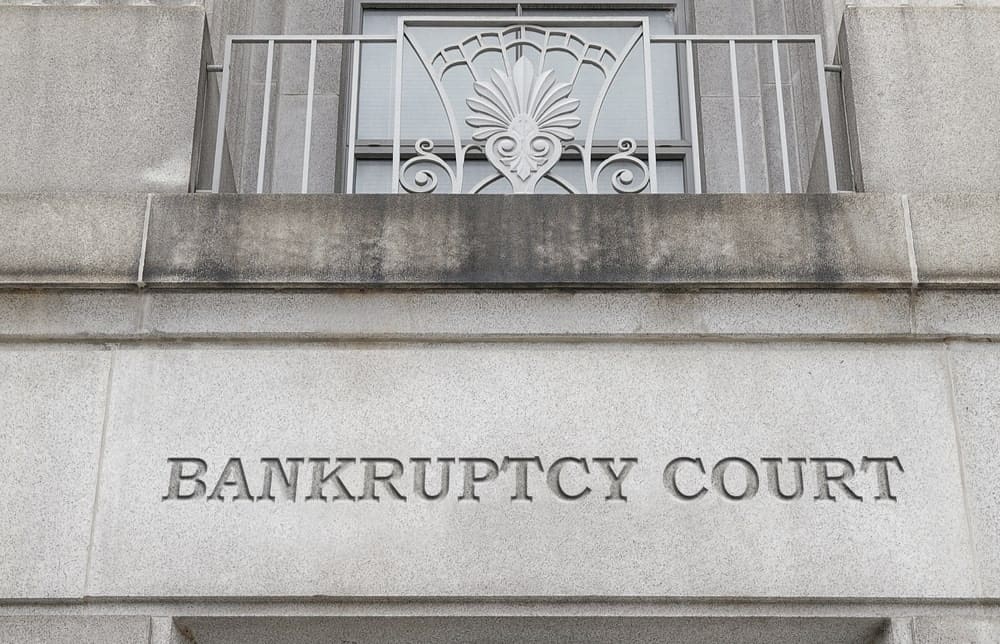Bankruptcy court is a specialized branch of the federal judicial system that deals exclusively with cases involving individuals and businesses struggling with insurmountable debt. Those facing financial distress must understand how bankruptcy court functions, as it plays a crucial role in determining debt relief options and legal obligations.
Understanding the Function of Bankruptcy Court
Bankruptcy courts operate under federal law and oversee cases where debtors seek financial relief through legal proceedings. These courts do not handle criminal or general civil cases but instead focus solely on bankruptcy filings, ensuring that both debtors and creditors are treated fairly under the law.
Federal bankruptcy judges preside over these cases, ruling on matters such as debt discharge, asset liquidation, and financial reorganization. Each state has designated bankruptcy courts that operate within federal judicial districts to manage cases efficiently.
Different Types of Bankruptcy Filings
Bankruptcy law provides various options for individuals and businesses based on their financial situations. The most commonly filed bankruptcy chapters include:
Chapter 7 Bankruptcy – Liquidation Bankruptcy
Chapter 7 bankruptcy is designed for individuals and businesses unable to pay off their debts. Under this process, a court-appointed trustee liquidates non-exempt assets to pay creditors. Once the assets are distributed, the court discharges eligible debts, offering the debtor a fresh financial start. However, some debts, such as tax liabilities, student loans, and child support, are typically not discharged under this chapter.
Chapter 11 Bankruptcy – Business Reorganization
Businesses facing financial hardship may file for Chapter 11 bankruptcy, which allows them to restructure their debts while continuing operations. This form of bankruptcy provides an opportunity for companies to create a repayment plan that must be approved by creditors and the court. The objective is to enable businesses to regain financial stability without shutting down completely.
Chapter 13 Bankruptcy – Repayment Plan for Individuals
Chapter 13 bankruptcy is available to individuals with a steady income who wish to restructure their debts instead of liquidating their assets. This plan allows debtors to create a structured repayment schedule over three to five years. If they comply with the repayment terms, any remaining eligible debts may be discharged at the end of the plan.
Steps to File for Bankruptcy
The process of filing for bankruptcy requires careful preparation and legal adherence. Individuals and businesses must first undergo credit counseling through a government-approved agency to determine if bankruptcy is the most appropriate solution.
Once counseling is completed, debtors must file a bankruptcy petition with the court, along with detailed financial documents outlining income, assets, debts, and expenses. The court then issues an automatic stay, which prevents creditors from pursuing collection actions such as wage garnishments, lawsuits, or foreclosures while the case is pending.
The Role of a Bankruptcy Trustee
A bankruptcy trustee is an impartial party assigned to oversee each case. The trustee is responsible for reviewing financial records, ensuring compliance with bankruptcy laws, and distributing assets to creditors when applicable. In Chapter 7 cases, the trustee liquidates assets, while in Chapter 13 cases, the trustee manages the repayment plan and ensures creditors receive their designated payments.
Meeting of Creditors and Court Hearings
After filing for bankruptcy, debtors must attend a meeting of creditors, also known as a 341 meeting. During this hearing, creditors have the opportunity to ask questions regarding the debtor’s financial situation and repayment intentions. Although creditors rarely attend, the trustee conducts the meeting to ensure that all legal requirements are met.
Debtors may also need to attend additional hearings depending on the complexity of their cases. These hearings allow the judge to review the bankruptcy plan, address objections from creditors, and determine whether debts will be discharged.
Debt Discharge and Its Limitations
A primary benefit of bankruptcy is the discharge of qualifying debts, which releases the debtor from any further obligation to repay those debts. However, not all financial obligations can be eliminated through bankruptcy. Debts such as student loans, child support, alimony, and some tax debts generally remain enforceable even after bankruptcy proceedings are completed.
Consequences of Filing for Bankruptcy
While bankruptcy offers relief from overwhelming debt, it carries significant consequences. A bankruptcy filing remains on a debtor’s credit report for several years, affecting their ability to obtain loans, mortgages, and even employment in some industries. Additionally, depending on the type of bankruptcy filed, individuals may lose valuable assets, such as property or vehicles, if they do not qualify for exemptions.
For businesses, bankruptcy can impact operational capabilities, investor confidence, and long-term financial viability. Chapter 11 filers must present a compelling recovery plan to creditors and stakeholders to continue operations successfully.
Exploring Alternatives to Bankruptcy
Before pursuing bankruptcy, individuals and businesses should evaluate alternative financial solutions. Options such as debt consolidation, credit counseling, and negotiations with creditors may offer viable ways to manage debt without legal proceedings.
Debt settlement programs allow borrowers to work out lower repayment amounts with creditors, while financial restructuring may help businesses stabilize their cash flow. Exploring these alternatives can help debtors avoid the long-term ramifications of bankruptcy.
Why Legal Representation Matters
Given the complexity of bankruptcy proceedings, hiring an experienced attorney can significantly benefit debtors. A bankruptcy lawyer can guide clients through filing requirements, ensure accurate documentation, and represent their interests in court. Attorneys also help protect debtors from potential legal missteps and assist in determining whether bankruptcy is the most suitable option.
While self-representation is possible, professional legal assistance increases the likelihood of a smoother and more favorable bankruptcy process. An attorney can also help debtors understand their rights and responsibilities throughout the proceedings.
Key Aspects of Bankruptcy Court Proceedings
Bankruptcy court follows strict legal procedures that all parties must adhere to. Debtors must fully disclose their financial information, comply with court orders, and follow the guidelines outlined in the bankruptcy code. Failing to meet these requirements can result in case dismissal, leaving the debtor without the protections afforded by bankruptcy.
Understanding the process of hearings, creditor claims, and asset evaluations is essential for those filing for bankruptcy. The court ensures fairness for both debtors and creditors while balancing financial recovery with legal obligations.
Rebuilding Financial Stability After Bankruptcy
Recovering from bankruptcy requires disciplined financial management. Debtors can start by establishing a budget, using secured credit cards, and making timely bill payments to rebuild their creditworthiness. Over time, responsible financial behavior can help restore a debtor’s financial reputation and improve access to credit.
Businesses emerging from bankruptcy must focus on improving operations, regaining customer confidence, and implementing sound financial strategies to prevent future financial distress. Creating a sustainable business model and avoiding excessive debt accumulation are key steps toward long-term financial stability.
Final Thoughts
Bankruptcy court plays a crucial role in helping individuals and businesses manage financial distress. However, the process requires careful consideration due to its long-term consequences. Understanding what you should know about bankruptcy court enables debtors to make informed decisions about their financial futures. Exploring alternative options and seeking professional legal and financial advice can help those in financial hardship achieve the best possible outcome while navigating the complexities of bankruptcy law.

